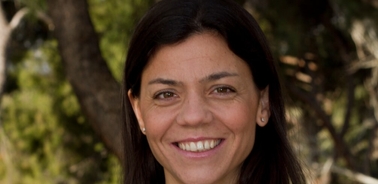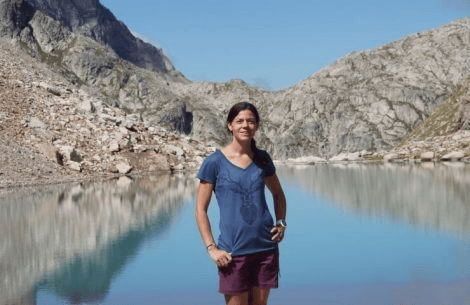- Home
- News And Events
- What’s Going On
- Faculty Spotlight: Rocío Bonet
Faculty Spotlight: Rocío Bonet

Meet one of IE Business School’s top researchers.
After finishing her PhD at the Wharton School of Business, Rocío Bonet chose to come to IE Business School to pursue her research in human resource management. Now she is a popular professor of Human Resources and Organizational Behavior, with students recognizing her as Best Professor several years. Her research appears in top-notch publications-- like Strategic Management Journal, Organization Science, and Academy of Management Journal--and she has received numerous awards to perform her research, including a Marie Curie grant from the European Commission and a GMAC fellowship. She has been an active member of the Strategic Human Capital Group at the Strategic Management Society since its inception and currently serves in the leadership team of the group.
What brought you to IE? What were you doing before this?
I came to IE attracted by the possibility to become a faculty member in a rapidly growing institution that was making research one of its core priorities. Before coming to IE, I was doing my PhD in the Wharton School, at the University of Pennsylvania. When I graduated, I wanted to pursue an academic career. IE gave me the opportunity to interview with them. I was fascinated by the research of everyone with whom I interviewed and by the commitment of the school to foster business knowledge creation. I was also impressed by the opportunities that IE could bring in terms of research, teaching, and building contacts with companies. And my expectations have been far exceeded throughout these years.
Have you ever had an a-ha moment while teaching that furthered your research? What was it?
Most of my courses are focused on teaching students how to manage people effectively. Due to my background, I focused a lot of my teaching around economic principles, such as efficiency. Very soon in my teaching journey, I realized the tremendous influence that the people management practices we covered in class could have for workers’ lives. I started thinking more and more of the importance of pointing to students the relevance of treating people well, not only for societal consequences but also because it makes business sense. So I took that as a goal in my research too. Most of my research these days focuses on trying to uncover the negative consequences for organizations of offering workers bad jobs.
What book do you wish your students would read before taking your class and why?
Thinking Fast and Slow, by Daniel Kahneman, because it shows in a very didactic way the types of biases we tend to have when making decisions in life. I do believe that these personal biases are at the heart of a lot of bad people management in organizations, so being aware of them is the first key step to improve the way we manage people.
Please name one of your recent articles you feel addresses the most important issues in 2021 for IE alumni?
Gender differences in speed of advancement: An empirical examination of top executives in the Fortune 100 firms. I think this paper is very relevant for today’s organizations as it suggests that institutional pressures to show gender diversity are forcing companies to take actions and proactively manage the careers of women. This has resulted in women getting to the top of the companies faster than their male counterparts do, which gives hope that something can be done to improve gender diversity at the top. Unfortunately, we also find that the advantage that a few women had over men in reaching their top executive positions disappears once there is more than one woman at the top already, which reveals the limits of doing something just to appease stakeholder pressures. We warn about the short-lived effects of institutional pressures and point to directions in which companies can actively work to improve gender diversity in the higher levels of the organization.
Whose research of your IE colleagues do you find interesting? Why?
This is a tough question! I love learning about the research of my colleagues and always find their projects interesting. But if I have to name a few, I would start with my department colleague Monika Hamori, whose research tends to center in examining the latest trends regarding people management in the labor market. Outside my department, I follow closely the work of Fabrizio Salvador, whose most recent research in flexibility is at the intersection of operations management and human resource management. I have also learned a lot with Cristina Cruz, who is passionate about understanding how family ownership may affect companies’ decisions, and I love hearing about Daniel Blake and Ben Barber’s work whom, being trained as political scientists, focus on understanding how non-market forces affect organizations.
Tell us one personal thing about yourself that none of your students knows. A hobby, sport or talent? Strange fact? Unusual interest?
I love seeing “the world from above”. I was born in Zaragoza, a city that is nearby the Pyrenees. While growing up, I used to spend my vacations in the mountains with my family and friends, skiing in the winter, climbing to the highest peaks in the Pyrenees in the summer. Whenever I can --not always easy as I am a mother of 4 little ones-- I like to escape to places where I can do long hikes and climb to the top of the mountains, be it near Madrid or in more exotic, remote places across the globe. My favorite one so far has been climbing an almost 6000 meter volcano in Bolivia, all covered by snow. We could feel that the levels of oxygen were definitively lower than usual.
